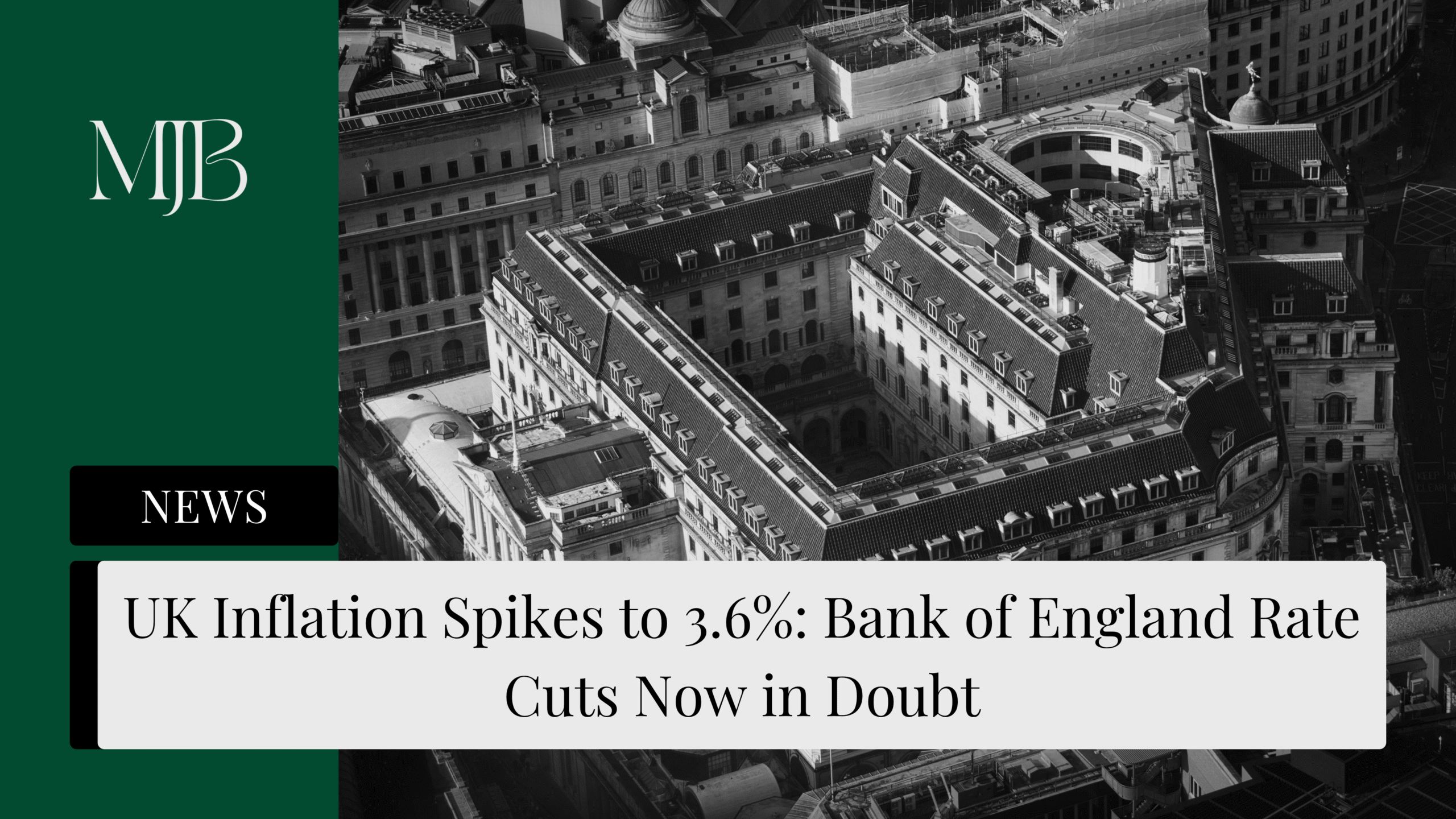Here’s a wake-up call: UK inflation just pumped to 3.6% in June, crushing economist predictions of 3.4% and putting the Bank of England in a proper bind. That’s 80% higher than their 2% target, and it’s the third straight month above 3%.
With services inflation running hot at 4.7%, rate-setters are facing a classic dilemma. Cut rates to help the struggling economy, or hold firm to tackle stubborn price rises? The dreaded “stagflation” word is already being whispered…
Why Inflation Keeps Climbing Despite Economic Weakness
The ONS points to two main culprits driving prices higher: motor fuel costs and food inflation. But there’s more beneath the surface.
Rachel Reeves’ tax changes are still working through the system. Higher employer National Insurance contributions, minimum wage increases, and soaring utility bills all hit in April, creating a concoction for price pressures.
The uncomfortable truth? Companies are passing these costs straight to consumers. AJ Bell’s Dan Coatsworth warns we’re seeing “a real threat of stagflation as inflation moves higher and the economy is stuck in the mud.”
Bank of England’s Impossible Choice
Rate-setters are truly caught between a rock and a hard place. The economy needs stimulus, but inflation demands restraint.
At the last meeting, only three MPC members voted for a 25 basis point cut. Chief economist Huw Pill actually opposed cuts in May, arguing rates had fallen “too fast” and were fuelling inflation.
The market’s betting on cuts anyway. But with services inflation still running at 4.7%, don’t expect aggressive moves. Capital Economics predicts a “gradual pace” of cuts, potentially reaching 3% by end-2026.
Jobs Data Could Tip the Balance
Next week’s employment figures might be the deciding factor. Economists expect revisions showing fewer job losses in May (around 50,000 vs. the initial 109,000 estimate).
Governor Andrew Bailey has flagged concerns about labour market “softening” and emerging “slack.” If job losses accelerate, it could force the Bank’s hand despite inflation concerns.
What This Means for Your Money
For borrowers: Don’t expect rapid mortgage relief. The Bank’s likely to move slowly and cautiously.
For savers: Higher rates might stick around longer than expected, which isn’t necessarily bad news.
For everyone: Brace for continued price pressures this summer before any meaningful relief kicks in.
Chancellor Rachel Reeves acknowledges people are “still struggling with the cost of living” but insists government measures like minimum wage increases and free school breakfast clubs will help. The Bank’s latest forecast suggests inflation could hit 3.7% in September before gradually falling toward target.
Bottom Line: Patience Required
The UK’s inflation problem isn’t going away quickly. With the economy struggling and prices rising, the Bank of England’s facing one of its toughest periods in years.
Markets still expect gradual rate cuts, but the days of rapid monetary easing are over. For now, it’s a waiting game to see whether economic weakness or inflation pressures win out.
Want more UK economic insights? Soon you’ll be able to subscribe to our weekly market briefing for the latest Bank of England analysis and inflation forecasts.
FAQ
Q1: Will the Bank of England cut interest rates in August despite rising inflation?
A: Markets expect a cut, but it’s far from certain. With inflation at 3.6% and services prices rising 4.7%, rate-setters are increasingly cautious about aggressive moves.
Q2: What’s causing UK inflation to stay so high?
A: Motor fuel prices and food costs are the immediate drivers. But underlying pressure comes from higher employment taxes, minimum wage increases, and utility bill rises from Rachel Reeves’ policy changes.
Q3: Is the UK heading for stagflation?
A: There are warning signs. Rising inflation combined with economic stagnation fits the classic definition, but it’s too early to declare full stagflation.
Q4: When will inflation return to the 2% target?
A: The Bank of England forecasts inflation gradually falling to 2% over 12 months, but expects it to rise further to 3.7% in September first.
Q5: How do rising prices affect mortgage rates?
A: Higher inflation typically keeps mortgage rates elevated longer. Don’t expect significant relief in borrowing costs while inflation remains well above target.
DISCLAIMER
Effective Date: 15th July 2025
The information provided on this website is for informational and educational purposes only and reflects the personal opinions of the author(s). It is not intended as financial, investment, tax, or legal advice.
We are not certified financial advisers. None of the content on this website constitutes a recommendation to buy, sell, or hold any financial product, asset, or service. You should not rely on any information provided here to make financial decisions.
We strongly recommend that you:
- Conduct your own research and due diligence
- Consult with a qualified financial adviser or professional before making any investment or financial decisions
While we strive to ensure that all information is accurate and up to date, we make no guarantees about the completeness, reliability, or suitability of any content on this site.
By using this website, you acknowledge and agree that we are not responsible for any financial loss, damage, or decisions made based on the content presented.






